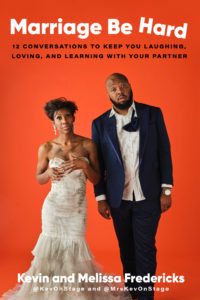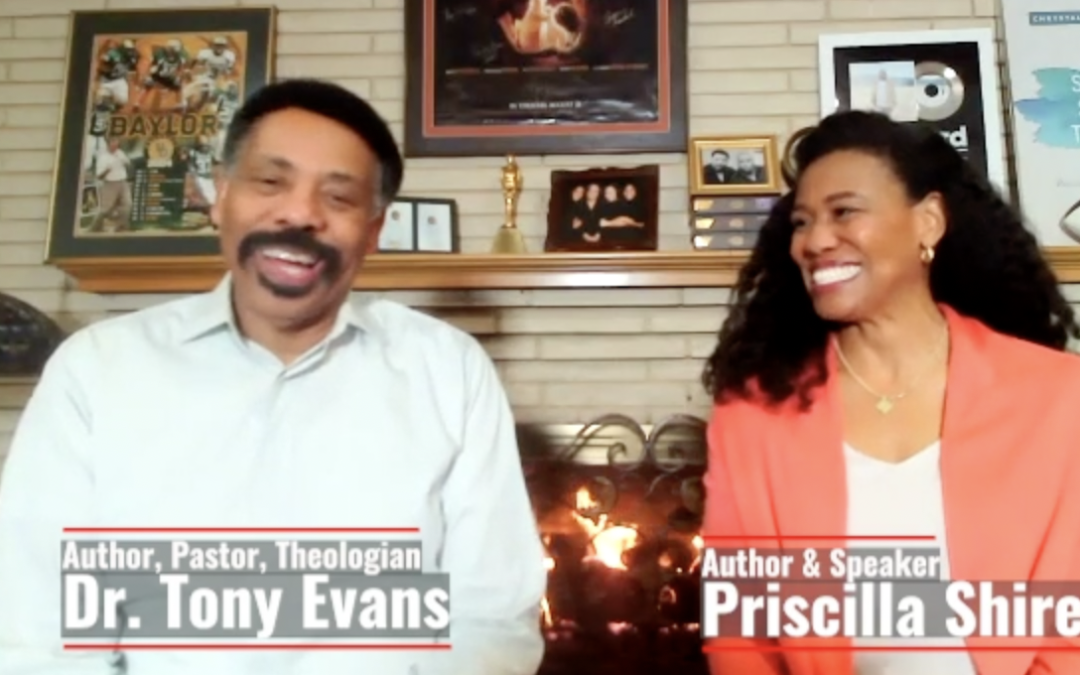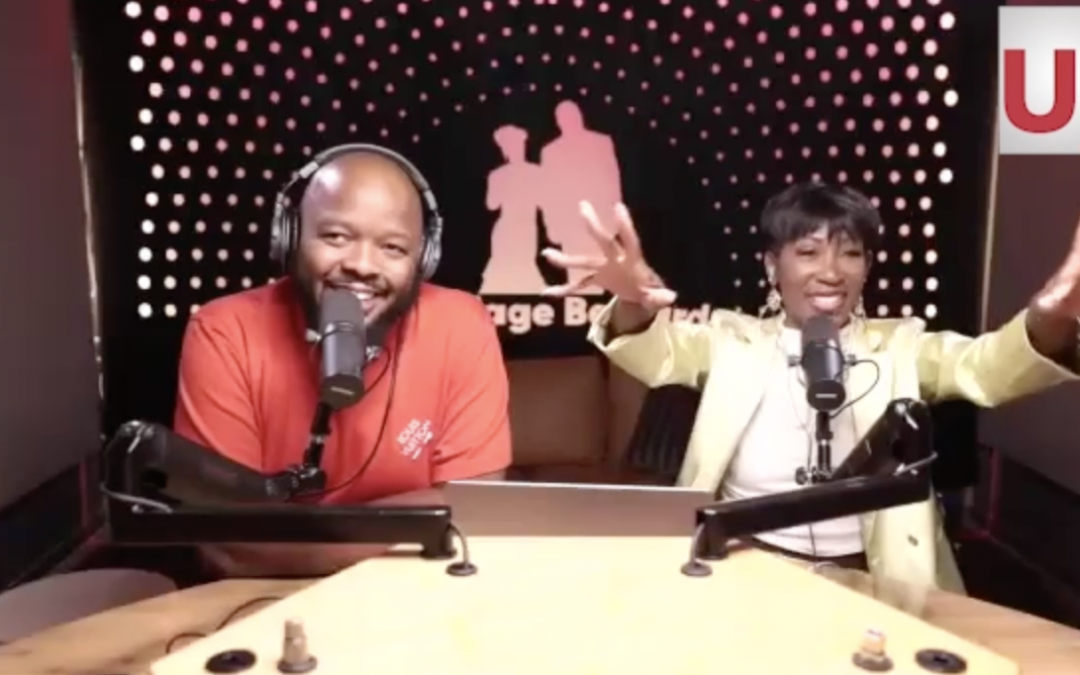
by Maina Mwaura & Allen Reynolds, UrbanFaith | Sep 18, 2023 | Commentary, Entertainment, Headline News, Magazine, Relationships |
Marriage is one of the most important institutions in the lives of believers. Unfortunately it is rarely spoken about beyond the headlines of culture wars in the news or as the excuse some believers hide real conversations about sex behind. A lot of believers have a hard time keeping it real about how hard it is to be married. Kevin and Melissa Fredericks, aka KevOnStage and MrsKevOnStage, rarely hold back on keeping it real in conversations.
With over a million followers on social media (which don’t happen for church folks), they are some of the most busy and influential believers on the internet. Their authenticity and creativity have helped them connect with the “churchy” and unchurched alike. But like all married folks they have had challenges in life and in marriage. Their new book Marriage Be Hard is a candid look at their marriage and the lessons they have learned along the way through reflection, therapy, The Love Hour podcast and real work. They hope to help couples everywhere to get past “just making it” in marriage to thriving through their insights.
UrbanFaith sat down with Kevin and Melissa to talk about their journey and their book. The full interview is above, more information on the book is below.
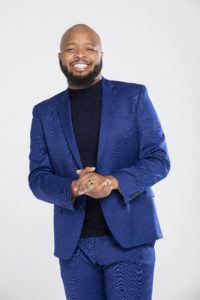
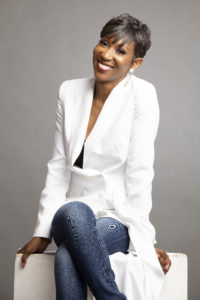
Discover the keys to upholding your vows while staying sane in this hilariously candid guide to relationships, from the husband-and-wife team of comedian Kevin Fredericks and influencer Melissa Fredericks
Growing up, Kevin and Melissa Fredericks were taught endless rules around dating, sex, and marriage, but not a lot about what actually makes a relationship work. When they first got married, they felt alone—like every other couple had perfect chemistry while the two of them struggled. There were conversations that they didn’t know they needed to have, fears that affected how they related to each other, and seasons of change that put their marriage to the test.
Part of their story reads like a Christian fairytale: high school sweethearts, married in college, never sowed any wild oats, with two sons and a thriving marriage. But there’s another side of their story: the night Melissa kicked Kevin out of her car after years of communication problems, the time early in their marriage when Kevin bordered on an emotional affair, the way they’ve used social media and podcasts to conduct a no-holds-barred conversation about forbidden topics like jealousy, divorce, and how to be Christian and sex positive. (Because, as Kevin writes, “Your hormones don’t care about your religious beliefs. Your hormones want you to subscribe to OnlyFans.”)
In Marriage Be Hard, the authors provide a hilarious and fresh master class on what it takes to build and maintain a lasting relationship. Drawing on interviews with experts and nearly two decades of marriage, they argue that• Compatibility is overrated.
• Communication is about way more than simply talking.
• Seeing divorce as an option can actually help your marriage.
• There’s such a thing as healthy jealousy.Real marriage is not automatic. It ain’t no Tesla on the open road. Sometimes it’s a stick shift on a hill in the rain with no windshield wipers. But if you get comfortable visiting—and revisiting—the topics that matter, it can transform your bond with your partner and the life you’re building together.Written for those tired of unrealistic relationship books—and for anyone wondering if they’re the only ones breaking all the rules—Marriage Be Hard is a breath of fresh air and the manual you wish existed after you said “I do.”
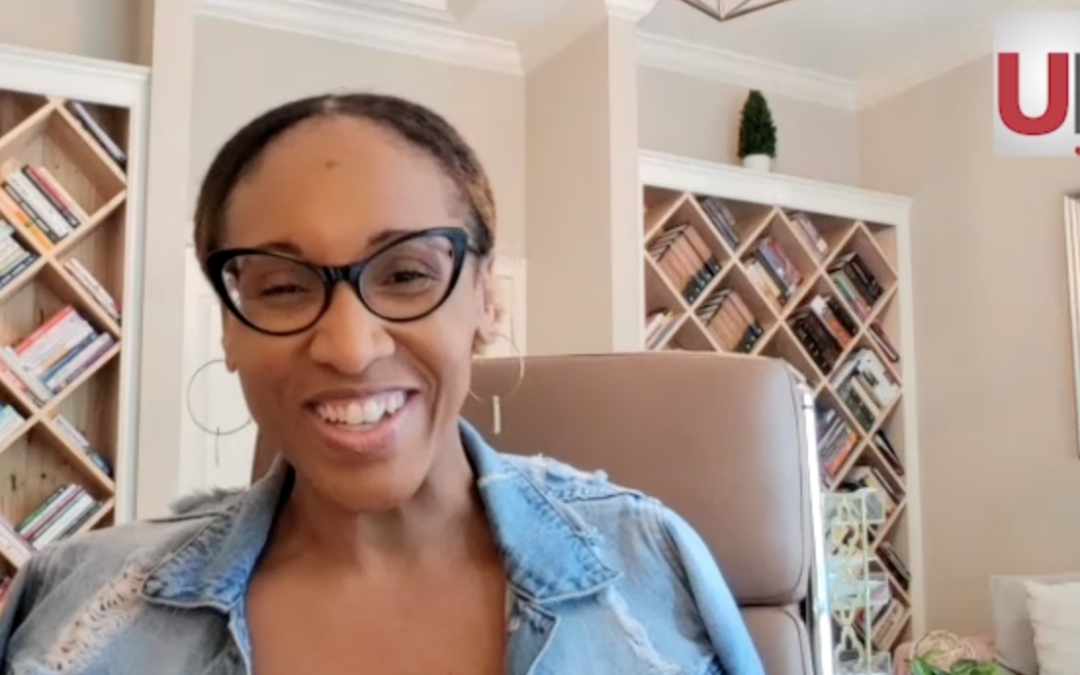
by Maina Mwaura, Urban Faith Contributing Writer | Oct 6, 2022 | Commentary, Headline News |
We have to get past the constant assault of comparison. It keeps us insecure, negative, and disappointed. Author, speaker, and business leader Nona Jones helps us get past the temptation of jealousy and attack of inferiority in her new book Killing Comparison. UrbanFaith sat down with her to discuss the book and her journey to overcoming insecurity and embracing more of her identity in Christ. The full interview is above, more information on the book is below.
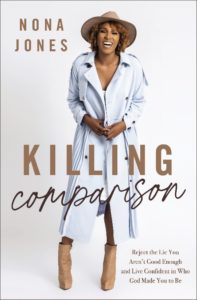
Nearly all of us deal with the struggle of comparison and finding ourselves lacking. But there is a way to break free from internal and external messages communicating a lack of self-worth.
It starts with identifying the basis of your urge to compare and ends with securing your identity to the unchanging confidence of God’s love for you.
Nona Jones knows this journey all too well. Throughout her life and in her career–most recently as an executive for the world’s largest social media company–Nona discovered that despite professional success, true confidence can only be achieved by defeating toxic comparison and securing our identity to God’s approval alone.
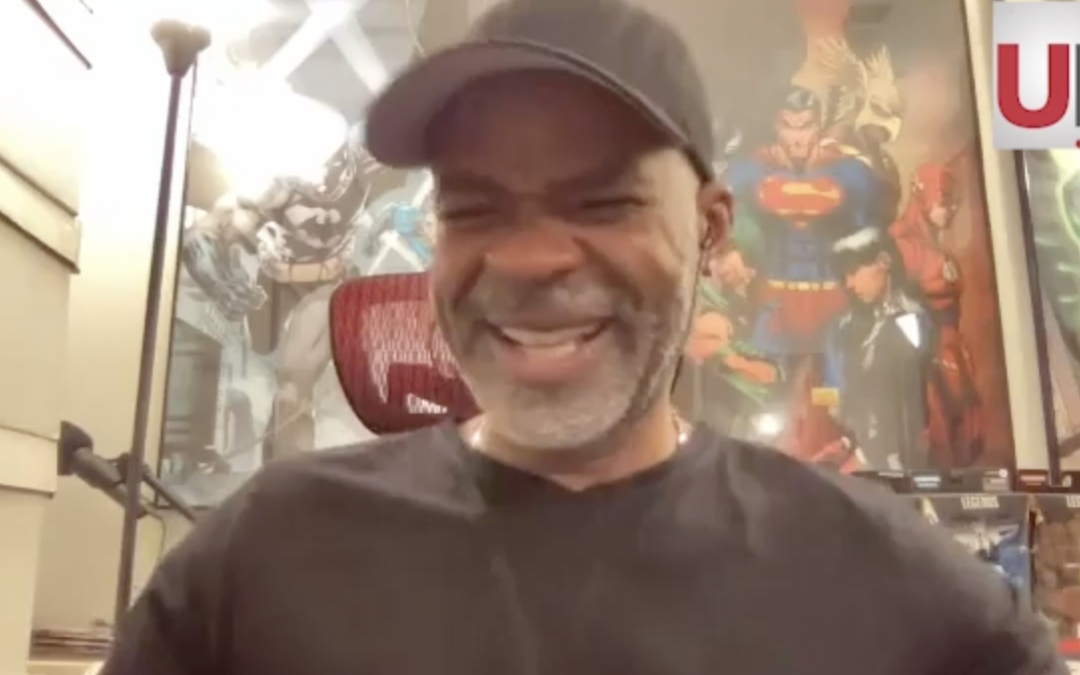
by Maina Mwaura, Urban Faith Contributing Writer | Aug 9, 2022 | Entertainment, Headline News |
From music educator to best selling author Brendan Slocumb has an unexpected journey. But his action packed novel The Violin Conspiracy is a fictional story based on his true life journey. UrbanFaith sat down with Brendan to talk about his book, his faith story, and what stories he wants to tell next. The interview is above. Information on the book is below.
—-
Most classical musicians are white, wealthy, privileged. Not Ray: he’s Black and comes from a single-family household, with a self-centered mother who actively blocks Ray’s aspirations. Only his Grandma Nora seems to care about his love for music. She gives him her old family treasure – a beat-up fiddle that hasn’t been played in eighty years. Ray confronts rampant discrimination from an establishment that believes that Black people cannot emotionally understand the music of dead white Europeans: Blacks should stick to hip hop, Gershwin, and jazz. A college music scholarship, and a professor’s mentorship, nurture Ray’s extraordinary talent and unstoppable ambition.
Then Ray discovers that Grandma Nora’s ancient violin is actually a rare and unique instrument that can take his playing to an entirely new level. The resulting media frenzy catapulted him into a solo violinist’s career. His star rises, but with success comes heartbreak: two lawsuits threaten to rip the violin away from him. In the first, his family claims that the instrument is rightfully theirs; in the second, the slaveholder family of his ancestors declare that Ray’s great-grandfather stole the violin from them. The two claims intertwine. Desperate to keep the violin, Ray makes a bargain that will have far-reaching and devastating consequences.
And then someone – his family? The slaveholder family? The mafia? – steals the violin. Ray has a month to raise five million dollars to pay the ransom before the Tchaikovsky Competition – classical music’s version of the Olympics – begins, and before the violin disappears forever.
In Moscow, under the glaring lights of musical stardom, Ray will not only compete, but will also discover what happened to the violin that means everything to him.
by Crystal Marie Grant | Aug 15, 2012 | Entertainment, Feature |

SUDDENLY HOT: Author E.L. James at a New York book signing. Her ‘Fifty Shades of Grey’ trilogy is a bestseller, but its erotic content has sparked controversy. (Photo: John Roca/Newscom)
You ever see a trailer for a movie starring one of your favorite actors and get super excited? You mark the date on your calendar, find as many sneak peeks and behind-the-scenes pieces you can and plan to see it opening night. The day arrives and you take out a loan so you can afford the overpriced buttery popcorn, Tropical Skittles, and calorie-packed soda. You sit through the previews, the reminder to turn your cell phone off and you anxiously wait for Will Smith/Hugh Jackman/Emma Stone to appear on the screen.
And then … the movie sucks. Not in the “it was OK” kind of way, but in the “B.A.P.S.” or “Soul Plane” kind of way. You feel duped by your favorite actor, the previews, and all the critics who failed to warn you.
This horrific feeling is EXACTLY how I felt after reading Fifty Shades of Grey, the bestselling book that everyone’s been talking about. Sadly, this wasn’t the end of my turmoil. Optimistic idealist that I am, I read the sequel and was disappointed again. At this point, I was two-thirds through the trilogy and it seemed that God had forsaken me. But I read that weeping only lasts for a night and that joy comes in the morning, so I walked back into the torture chamber that is the third installment of the Fifty Shades series. I’m sad to report that morning hasn’t arrived.
The only joy I derived from reading these three books comes from the knowledge that I can warn you to avoid them.
Prior to ingesting the revolting pill that is the Fifty Shades trilogy, I saw nothing but rave reviews about the series via social media. To be honest, most of the feedback was vague — “I can’t stop reading it … I can’t put it down. It’s so addictive!” — but still positive. So, of course, as an avid reader of just about everything stirring in pop culture, from The Hunger Games trilogy to anything by Malcolm Gladwell, I had to check it out.
I could write a book, maybe even a trilogy, about the horrors of Fifty Shades, but I’ll condense it to the top three problems I had with the books. (And be warned, my reflections may include a few spoilers.)
1. No one told me it was erotica!!! Call me old-fashioned but I thought books like this came in a brown paper bag and required an ID for purchase. In all of my discussions of the book, no one mentioned that one of the primary themes of the plot involved the VERY adult subject of a sexual counterculture BDSM. My issue with the book isn’t that it’s erotica; it’s the idea that erotica is considered mainstream reading material. Since when does erotica make it to the NY Times bestsellers list? I was caught off guard, unprepared for it, and therefore, a bit nauseated by it. (Erotica is one thing; erotica I’m not prepped for is a whole ‘nother matter.)
2. The plot is implausible. Pardon me for wanting my fiction to make at least a little sense, but I’m pretty sure that there are several Disney fairy tales that are only slightly less believable than Fifty Shades. A few plot problems:
• What 22-year-old woman with several handsome and eligible men fawning all over her has NO idea that she’s attractive?
• What 27-year-old man who is savvy enough to amass a colossal wealth of billions of dollars is also silly enough to entrust it to a woman that he’s known for a few months?
• What are the odds that a billionaire who is a local celebrity has had an extremely deviant sexual relationship with over a dozen women and NO ONE knows?

GREY GROUPIES: Fans of ‘Shades of Grey’ author E.L. James snap pictures of the writer at her New York book signing. The trilogy, and its erotic themes, has struck a chord with ordinary housewives. (Photo: John Roca/Newscom)
3. The story is redundant. Possibly the worst crime committed by Fifty Shades is the monotony. You just want to shake Ana and tell her to stand up for herself; then you want to grab Christian and tell him to grow up. For those of you who must go through the pain of reading this on your own, I won’t spoil it. But I will tell you this. The characters don’t change or grow. They do and say the same things over and over. There are no plot twists. At the beginning of the trilogy, Ana is a girl with low self-esteem who believes her best friend is beautiful and she is mousy. In the third book, Ana meets with an interior designer and this same low self-esteem makes her feel mousy again. At the beginning of the trilogy, Christian is an intelligent but selfish man with a little boy temper. At the end of the trilogy, Christian is a man with a family and a little boy temper. What most people love about a book series is that you get to see the characters evolve and the story keeps getting better and better as it progresses. In this case, the story keeps going but it never changes.
Fifty Shades of Grey apparently began as an experiment in fan fiction, with British housewife Erika Leonard mimicking The Twilight series and giving her stories away for free on the Internet. Initially popular with bored housewives, the stories soon developed a cult following and exploded into a publishing phenomenon. Leonard, writing as “E.L. James,” now reportedly hauls in millions of dollars each week from her erotic trilogy.
In some ways, I can resonate with Leonard’s backstory. She turned an evening diversion into a literary jackpot. Who doesn’t love a good success story?
But that feel-good stuff only goes so far. My favorite pastime is reading and I’ve always looked at it as a temporary escape from my own personal reality. Leonard’s trilogy, however, wasn’t an escape from my reality; it was a departure from all reality.
I’d call it a waste of paper, but I at least was smart enough to purchase the e-versions. Save yourself from 50 evenings of exasperation. Leave Fifty Shades of Grey on the shelf.
What do you think?
If you’ve read the Fifty Shades of Grey trilogy, what’s your opinion of the books? Harmless entertainment? Porn for soccer moms? How should Christians think about these books and their popularity?



